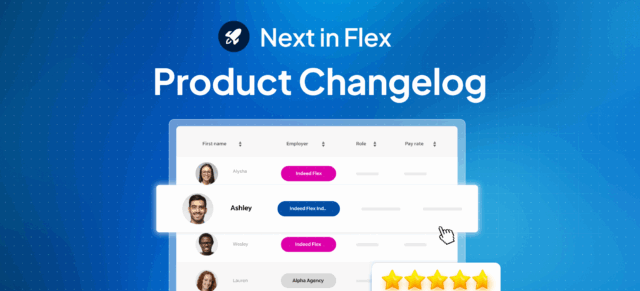
IR35 has caused great confusion across the private sector, following the recent changes. We’ve pulled together the most important bits to help organisations correctly manoeuvre the taxation law.
What is IR35?
IR35 is a tax law aimed at ensuring the fair taxation of workers supplied through an intermediary. In this case, an intermediary would be a person or body that acts as a link between the worker and an organisation, such as a staffing agency. Each contract should be assessed individually to determine whether HMRC would consider it to be inside IR35. This ensures that the worker is given the correct tax status and the correct amount of National Insurance is contributed.
It’s important for organisations, workers and intermediaries to understand the rules of IR35 to avoid a tax investigation that could lead to a penalty. HMRC says “The rules make sure that workers, who would have been an employee if they were providing their services directly to the client, pay broadly the same Income Tax and National Insurance contributions as employees.”
In short…
IR35 is a law that decides whether off-payroll workers are paying the right amount of tax and national insurance
What has changed?
Organisations in the Public sector
No changes. If your organisation is in the public sector, it is still your responsibility to assess whether your off-payroll worker would come under IR35.
Organisations in the Private sector
Up until 6th April 2021 the private sector didn’t need to concern itself with IR35. The responsibility was with contractors (intermediary). Now all medium to large organisations in the private sector have been given the responsibility of determining their off-payroll workers status. You must examine each contract to determine whether they fall under the legislation of IR35 For small companies in the private sector, the intermediary remains responsible for deciding the worker’s employment status and if the rules apply.
Your quick guide to IR35
Check if your company is liable for IR35
You can do this through the government website. Only large and medium companies are held liable. If your business is classified as small, you are exempt.
Identify how many contractors your business engages with
This includes any contractors or freelancers your business directly engages with or casual staff that you engage with through staff agencies.
Establish your workers’ status: Employed vs Self-Employed
Communicate with your suppliers to understand if they are self-employed as a sole-proprietor or through a one-person limited company. Factors to consider include the genuine terms of the contact, the control of the worker’s freedom of when, where and how the tasks are carried out, and financial risk. You can read the ins and outs of establishing the status of the workers here.
Ensure you are IR35 compliant
After establishing their employment statuses, ensure the contractors or suppliers are IR35 compliant by asking your finding out if they are paying the correct taxes, as well as NICs from the payments you invoice to them.
Get expert support to review your contracts with workers
If required, you should seek legal advice to review your contracts with any contractors or suppliers to ensure they meet the requirement for IR35.
In short…
Medium and large organisations need to identify whether contracted workers would be classified as an employee, if they weren’t hired through an intermediary.
Why is it important?
When the responsibility is with the intermediary – often being the worker themselves through their own company – the penalty for not considering themselves under IR35 was minimal and only slightly more costly than paying the correct tax in the first place. This meant that the government was missing out on millions of pounds, as workers chose to list themselves as exempt from IR35. Now that the responsibility has been shifted to the organisation, if IR35 is not adhered to, the organisation will be penalised. This means that the company will be liable to pay the tax and national insurance, that the worker should have contributed, themselves.
Be IR35 compliant with Indeed Flex
One of the options for your business to be IR35 compliant is to hire workers as PAYE or ensure the agencies you book staff with are compliant. Flexible workers (Flexers) at Indeed Flex are treated as employees. This means compliance is handled for you, saving you time and money.
Indeed Flex manages the payroll, NICs, and pensions for all Flexers on the platform. By using Indeed Flex, your business will keep the flexibility of hiring workers through an agency brings, while making sure that your temporary staff are IR35 compliant.








